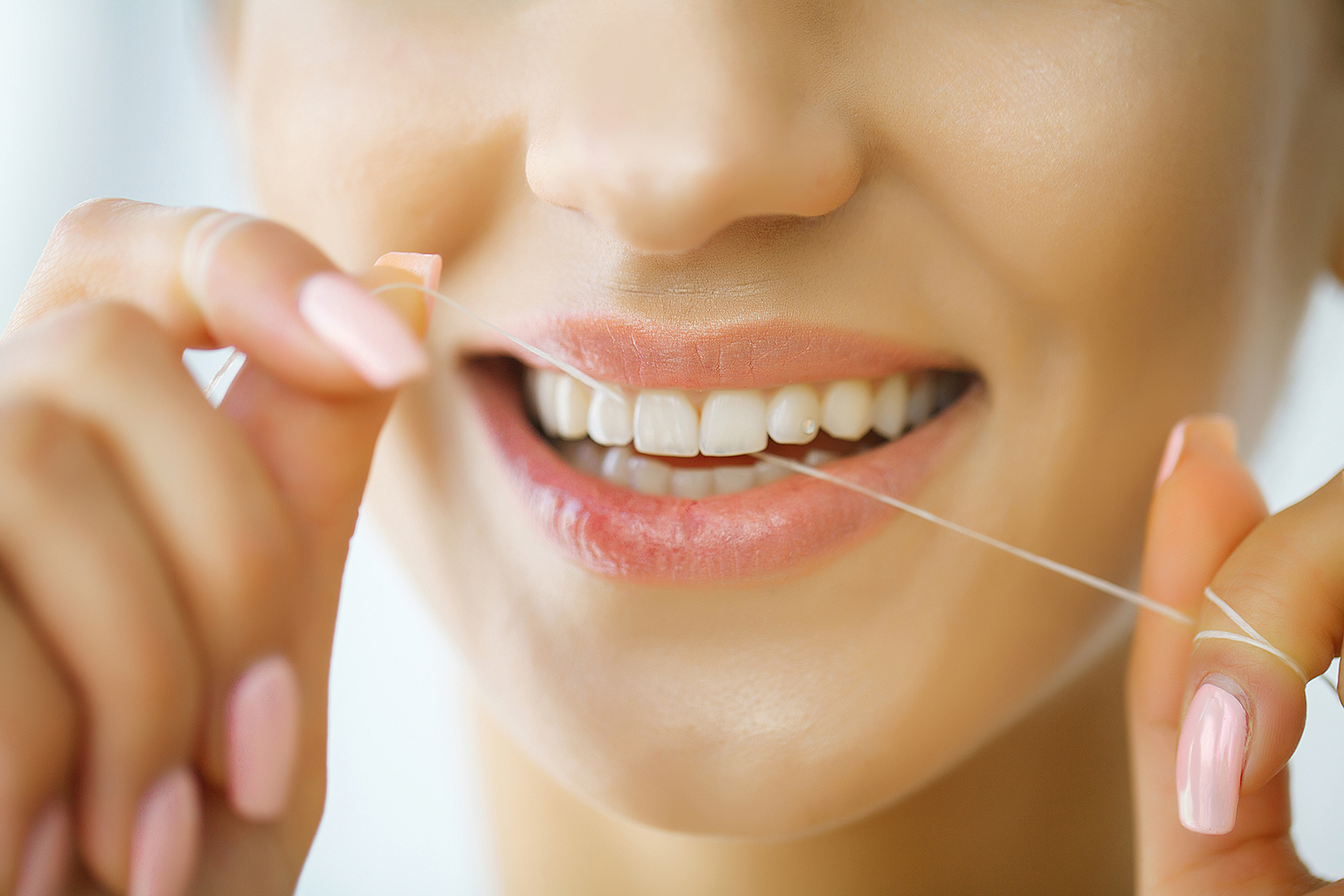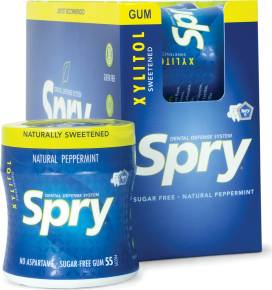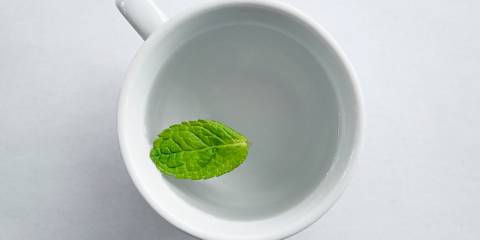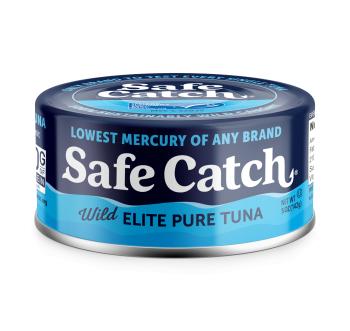How valuable is a healthy, attractive smile? More than 70 percent of surveyed Americans rated it “important” for making friends, dating, and succeeding at work—and the benefits don’t stop there. Our teeth and gums play a vital role in overall health and well-being. But many of us don’t give oral health a lot of thought.
“Brushing and flossing are great to help prevent tooth decay and periodontal disease, but they’re not enough,” says Sally Cram, DDS, spokesperson for the American Dental Association. Diet is important, and it’s also crucial to have periodic exams if you want to avoid gum disease, she adds.
A Healthy Smile Starts with Diet
A diet low in sugar and refined carbo-hydrates is essential. Choose fresh fruits and vegetables that will give teeth and gums a workout, helping to keep them healthy and strong.
Important nutrients include calcium and vitamin D, useful in preventing tooth loss, and antioxidants, which help protect against gum infections. “To ensure the connective tissue holding your gums together is properly formed, you’ll need sufficient amounts of vitamin C,” says nutritionist Ann Louise Gittleman, PhD, CNS. Vitamin B complex also supports healthy gums. “A deficiency of magnesium produces swollen and sore gums, which improve when magnesium is added to the diet,” Dr. Gittleman adds. Magnesium-rich foods include blackstrap molasses, dairy products, nuts, seafood, seeds, soybeans, wheat germ, and whole grains including cornmeal, oatmeal, and rice.
Oral Hygiene
Brush at least twice a day, or more if your teeth feel sticky. Persistent bad breath or bad taste may also signal a problem. Flossing once or twice daily helps keep the area between teeth free from plaque and tartar.
Gum Disease
Gum disease starts with plaque, the thick, sticky substance that can easily accumulate on teeth if dental hygiene is inadequate. When bacteria-harboring plaque comes in contact with sugar, it creates an acid that erodes tooth enamel and causes cavities. As plaque accumulates, it hardens into tartar and eventually causes gingivitis, inflammation of the gums often considered an early stage of periodontal disease. Periodontal, or gum, disease is a chronic infection of the gums that affects bones supporting the teeth.
“The problem with gum disease is that it really doesn’t hurt until it is severe,” explains Dr. Cram. “Signs of gingivitis include red, swollen, bleeding gums, but bone loss can occur under the gum, where you can’t see it.” A professional’s probing the depth of the gum around the teeth is critical in finding early signs of the illness.
Supplements to Protect and Heal Gum Tissues
Dr. Gittleman cites Japanese research showing that CoQ10 (30 to 90 mg daily) helps relieve bleeding gums and protects against their deterioration and subsequent loosening of teeth. Vitamin A, along with natural vitamin E and zinc, work to heal gum tissue. Also take folic acid (vitamin B9) orally for gingivitis.
While this condition is reversible, it does require attention. If left untreated, gingivitis can lead to periodontitis. In advanced stages of periodontitis, tissue and bone loss become so severe that teeth loosen and separate from the gum. They may fall out or require removal, not exactly a prospect to smile about!
Anyone with diabetes is especially susceptible to periodontal disease, and untreated gum disease makes diabetes harder to control. Symptoms like frequent abscesses that don’t respond to treatment may be an indication of diabetes.
Natural Oral Care Products
The right products can support oral health—and protect your smile. “Many natural ingredients have been shown to be effective at reducing the colonization of plaque-forming bacteria and stopping the progression of periodontal disease and cavities,” says Autumn Blum, founder and CEO of Organix-South, Inc.
Natural Toothpastes
Natural toothpastes tend to be free of irritating additives—sodium lauryl sulfate and FD&C colors, for example. They also achieve refreshing flavors without the counterproductive addition of sugar or artificial sweeteners. Look for products with nutrients that promote teeth and gum health: antioxidants CoQ10 and C, as well as bacteria-fighting botanicals including perilla seed extract, goldenseal, echinacea, grapefruit seed extract, and neem. Anti-inflammatory herbs, such as aloe vera and calendula, are also beneficial.
Natural Dental Floss & Mouth Wash
Look for floss with tea tree, cranberry, myrrh, and green tea to help fight plaque and bacteria. For complete oral protection, finish up with a mouthwash that can kill germs in those hard-to-reach places that brushing and flossing often miss. “Natural mouthwash formulations have been clinically proven to be more effective than conventional mouthwashes at preventing periodontal disease,” says Laura Kuykendall at The Natural Dentist. “Ingredients such as glycerin coat the mouth so that antibacterial botanicals like echinacea and goldenseal remain on gums to help fight the bacteria that cause periodontal disease.” Naturally healthy teeth and gums—now there’s that gorgeous smile.
Xylitol
Xylitol is a sugar alcohol found in birch trees and many plants, fruits, and vegetables. It’s also naturally produced by the body. This low-calorie sweetener is used in chewing gums, mints, toothpastes, and other natural products. Research supports using xylitol to prevent cavities and tooth decay, especially in young children. Bacteria cannot utilize xylitol to grow; therefore, fewer decay-causing bacteria survive on the tooth’s surface over time, reducing plaque formation. Studies show that mothers who regularly chew xylitol gum are less likely to pass bacteria associated with cavities to their children.
Use the Right Dental Tools
For maximum cleaning, try a natural or alternative toothbrush. With a variety of designs, including large heads, asymmetrical shapes, and curved handles, these brushes enhance cleaning techniques and minimize pressure to the gums, helping to prevent gum damage.
“Studies indicate that brushing at a 45-degree angle between teeth and gums is the best way to remove plaque,” explains Kevin Foley of Radius. In fact, the American Dental Association has endorsed the 45-degree angled brushing technique.
Keep It Clean So Those Teeth will Gleam
Some experts advise changing your toothbrush monthly to keep bacteria in check. Keeping your tongue clean is also important. “Brushing and flossing removes bacteria from teeth and gums, but not the tongue, which also harbors bacteria that can lead to periodontal disease,” explains Dakshina Vanzetti of Auromere Ayurvedic Imports. “So it’s important to clean your tongue daily.” Gently scrape with a toothbrush or tongue cleaner every morning after you brush and floss. Removing bacteria this way also helps prevent bad breath.
Finally, consider dental picks flavored with tea tree oil to use during the day. Simply hold a pick in your mouth to soften it, then gently massage between each tooth and under the gum line after meals to help remove plaque.





